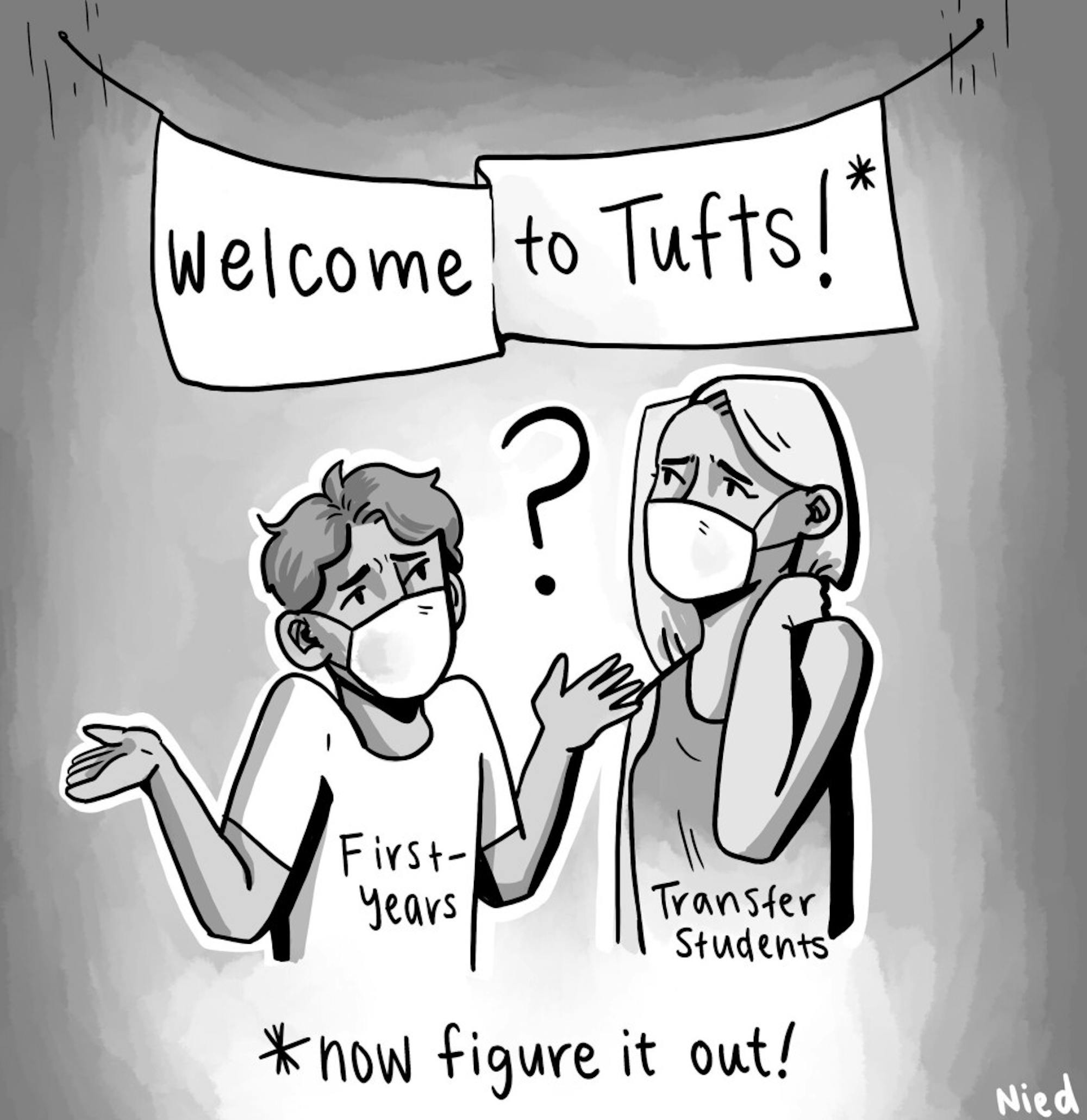During the past months, we returned to a campus very different from the one we left in March. In some ways, our community came back more united and resilient than ever; in others, we remain separated by screens and health precautions, and many are left isolated and disconnected from the Tufts community.This experience is amplified for first-year and transfer students, who must navigate an entirely new campus on top of the pandemic. In order to properly integrate these new members into our community, Tufts must facilitate safe social gatherings, increase accessibility to student organizations, revise orientation programs and fully support its new students.
For first-year and transfer students living on campus, dorms provide a home base for attending online lectures,studying and spending time with friends. However, being confined to residential cohorts, while a safer alternative, can be isolating. Especially given that students spend more time in their living spaces, resident assistants must continue building community in these spaces by sponsoring socially distanced gatherings for cohorts, such as outdoor meals, walks to Davis Square and virtual bondings.
In addition to residential halls, student organizations allow new students to meet like-minded individuals. However, virtual club meetings and recently implemented protocols, such as the prohibition of singing and playing wind instruments, pose significant barriers to forming relationships in these organizations. Joanna Strogatz, a first-year, hoped to join an a cappella group on campus this year.
“I was really hoping to come in and meet people through those groups,” Strogatz said.
Getting involved with student groups poses greater challenges for remote first-years and transfers. Those in different time zones may face heightened barriers to attending general interest meetings, club meetings and bondings.
Tufts students and administrators have also fallen short of fostering an inclusive and flexible extracurricular environment for remote first-year and transfer students. In order to accommodate these students, Tufts administrators and student organization leaders must offer accessible alternatives for meeting and participating in student life. This could include offering alternative meeting times and recording virtual events.
While necessary to foster community among first-years and transfers, it is important to consider the differences between these groups and the distinct resources they require.While both communities are new to Tufts, transfer students may feel particularly isolated as they enter an environment where their peers are already acquainted with Tufts’ campus. Due to these differences, some expressed concern with grouping first-years and transfers during Tufts’ virtual orientation.
“The orientation was clearly catered for first years,” sophomore transfer Logan Chin told the Daily. “There was nothing specifically for transfer students to help us get oriented once we got here.”
Instead of impersonal, grouped orientation sessions, Tufts should offer transfer students a comprehensive guide tailored to their needs. Tufts must revise its orientation programs to account for differences among new students and include relationship-building techniques that facilitate interpersonal connections before coming to campus.
During this semester, residential directors, Tufts administrators and resident assistants must continue fostering connections and ensure that residential cohorts welcome transfer students into the Tufts community. Additionally, Tufts could develop a mentoring program in which older transfer students offer advice and moral support to younger transfers, similar to programs at Boston University and University of California, Santa Barbara.
First-year and transfer students are vital to Tufts; they offer perspectives essential to the growth of our community. It is crucial that we make an active effort to support these students as they navigate both the adversity and excitement of uncovering what the Hill has to offer, now and for years to come.






